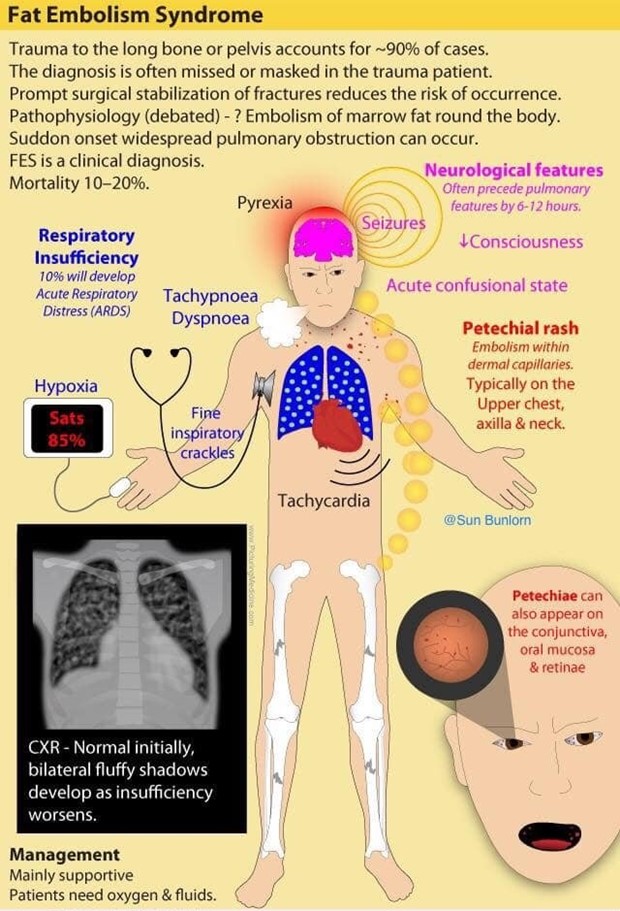The nurse assesses a patient who had a total abdominal hysterectomy 2 days ago. Which information about the patient is most important to communicate to the health care provider?
The 24-hour oral intake is 600 ml greater than the total output.
The patient's temperature is 100.3" F 137.9" C).
The patient reports abdominal pain at level 6 (0 to 10 scale) when ambulating
The patient's calf is swollen, warm, and painful.
The Correct Answer is D
These symptoms suggest the possibility of deep vein thrombosis (DVT), which is a potentially serious complication following surgery. DVT occurs when a blood clot forms in a deep vein, commonly in the lower extremities. The symptoms of a swollen, warm, and painful calf can indicate the presence of a DVT.
DVT is a medical emergency that requires immediate attention and intervention to prevent further complications such as a pulmonary embolism (where the blood clot travels to the lungs). Prompt evaluation and treatment, such as anticoagulant therapy, are necessary to prevent complications
Nursing Test Bank
Naxlex Comprehensive Predictor Exams
Related Questions
Correct Answer is D
Explanation
Fat embolism syndrome can occur when fat globules enter the bloodstream after a long bone fracture, such as a femur fracture. The fat globules can travel to the lungs and cause respiratory distress and decreased oxygen saturation. The symptoms observed in the client, including tachypnea (labored breathing), decreased oxygen saturation (88%), and the presence of petechiae (small red or purple spots) on the neck and anterior chest, are consistent with fat embolism syndrome.

Fat embolism syndrome is a serious condition that requires immediate medical attention. Notifying the healthcare provider allows for prompt evaluation, confirmation of the diagnosis, and initiation of appropriate treatment. This may involve further diagnostic tests such as a chest CT scan, as mentioned in one of the options, to rule out other potential causes or complications.
Correct Answer is C
Explanation
Weight gain is a positive indicator of improved nutritional status. It suggests that the client is receiving adequate nutrition and their body is able to build up and retain weight. This is particularly important in the case of protein-calorie malnutrition, as it indicates that the client is receiving sufficient protein and calories to support their nutritional needs.
Whether you are a student looking to ace your exams or a practicing nurse seeking to enhance your expertise , our nursing education contents will empower you with the confidence and competence to make a difference in the lives of patients and become a respected leader in the healthcare field.
Visit Naxlex, invest in your future and unlock endless possibilities with our unparalleled nursing education contents today
Report Wrong Answer on the Current Question
Do you disagree with the answer? If yes, what is your expected answer? Explain.
Kindly be descriptive with the issue you are facing.
